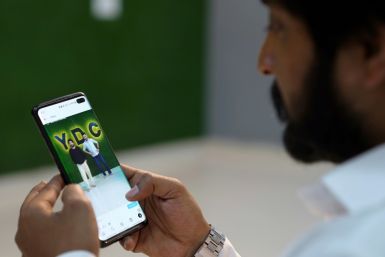Experts Ask If The Pen Is Still Mightier Than A Keyboard

When was the last time you picked up a pen to actually write something? With the presence of touchscreen smartphones and tablets and laptops; we seem to be surrounded by technological devices, which may even be smarter than the average human being, that are built to make everyday chores easier. But how difficult are these everyday chores to begin with? The simple act of writing has almost been replaced by typing on keyboards and touchscreen pads.
A recent survey conducted in Britain revealed that one in three participants had not written anything at all in six months. Moreover, it was found that on an average, people could go for as long as 41 days without writing by hand anything at all in their everyday lives. This result can be quite an alarming trend, especially as handwritten copy is quickly being replaced by typed material in the workplace.
Handwriting experts have said that there is cause for concern when noting the declining rate of handwritten material. Edouard Gentaz, who is a professor of developmental psychology at the University of Geneva, said, "Handwriting is a complex task which requires various skills - feeling the pen and paper, moving the writing implement, and directing movement by thought."
Some scientists are of the opinion that typing may be equally, if not more beneficial in engaging and developing cognition among humans. Anne Trubek, associate professor at Oberlin College in Ohio, stated a few years ago, "This is what typing does for millions. It allows us to go faster, not because we want everything faster in our hyped-up age, but for the opposite reason: we want more time to think."
However, some neuroscientists are wary of this typing revolution. In fact, many hold the opinion that handwriting can help individuals appreciate the intimacy between thought and the written word. Some researchers also opine that act of writing can help improve memory of learnt concepts.
The debate about handwriting versus typing is one that is gathering momentum with time. While there are scientific studies that provide positive feedback for both sides of the fence, it is hard to deny the beauty and functionality of the art of handwriting.





